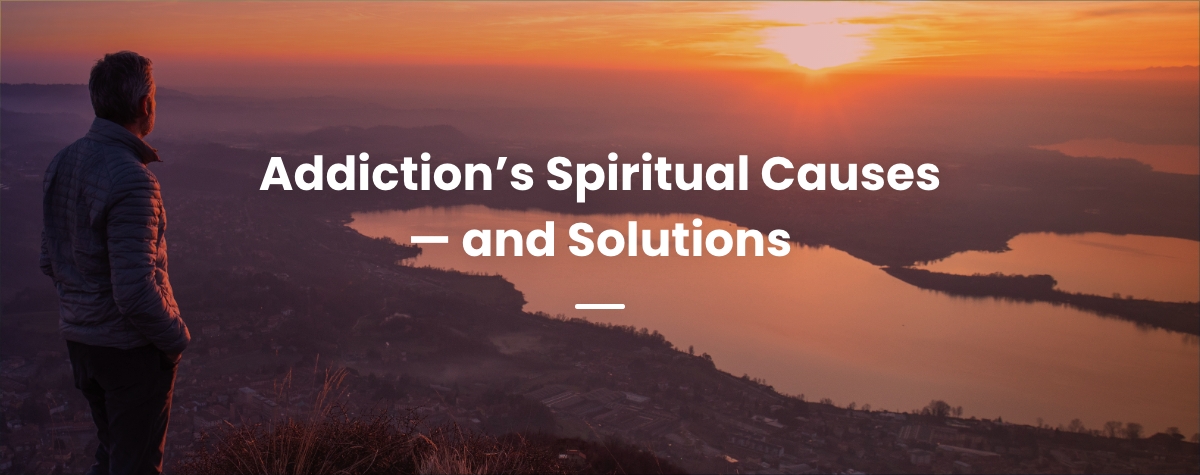In contemporary society, the phenomenon of addiction presents a pervasive challenge, with ramifications that extend beyond the individual to affect families, communities, and nations. The Bahá’í teachings offer profound insights and spiritual solutions that aim to foster an addiction-free society. This article delineates the multifaceted approach of the Bahá’í Faith towards addressing the crisis of addiction, emphasizing the interconnection of individual well-being, community empowerment, and spiritual enlightenment.
Understanding Addiction: A Multifaceted Perspective
Addiction is often perceived merely as a physical compulsion; however, the Bahá’í perspective recognizes it as a complex interplay of spiritual, psychological, and social factors. The teachings emphasize that the essence of human existence encompasses both material and spiritual dimensions. Consequently, addiction is seen not just as an issue of physical dependency but as a symptom of a deeper spiritual malaise. Individuals grappling with addiction may be seeking fulfillment, security, or identity in ways that are ultimately unproductive and harmful. It is essential to understand addiction through this broader lens of human experience.
The Role of Spiritual Development
Central to Bahá’í teachings is the concept of spiritual development as a fundamental aspect of human life. Spirituality fosters resilience, cultivates virtues, and creates a sense of purpose—a vital counterbalance to the emptiness that often breeds addiction. Engaging in spiritual practices such as prayer, reflection, and service to humanity enhances one’s connection with the Divine and reinforces the capacity for self-control and discipline. The practice of virtues such as love, compassion, and humility contributes to a profound sense of belonging and acceptance, which are crucial elements in combating the allure of addictive behaviors.
Community Empowerment and Support Systems
A holistic approach to addiction requires a robust framework of community engagement. The Bahá’í teachings advocate for the development of networks that uplift and support individuals. Communities must serve as bastions of hope, providing spaces where individuals struggling with addiction can find acceptance and understanding. Establishing support groups, educational programs, and outreach initiatives can significantly empower individuals on their recovery journey. These community centers can foster a sense of camaraderie that counters the isolation often experienced by those entangled in addictive behaviors.
Promoting Education and Awareness
Education plays a crucial role in alleviating the crisis of addiction. The Bahá’í teachings underscore the importance of disseminating knowledge regarding the effects of addiction and the spiritual solutions that exist. Awareness campaigns can demystify the stigma surrounding addiction, fostering an environment conducive to healing and recovery. Workshops, seminars, and community discussions can serve as platforms where individuals can learn about the interplay of psychology, spirituality, and social influences on addiction. Knowledge empowers, and informed individuals are more likely to seek help and support.
Fostering Healthy Relationships
Interpersonal relationships significantly influence an individual’s propensity towards addiction. The Bahá’í teachings emphasize the necessity of nurturing healthy relationships built on trust, respect, and understanding. Cultivating a supportive social network can serve as a protective factor against the risks of addiction. Engaging in meaningful conversations and constructive dialogues with family members and peers nurtures emotional intimacy, which can provide a refuge for individuals experiencing distress. The importance of fostering such relationships cannot be overstated; they serve as the bedrock of a supportive environment conducive to recovery.
Engaging in Service to Humanity
Service to others emerges as a transformative antidote to addiction. The Bahá’í Faith encourages individuals to transcend their struggles by contributing to the well-being of their communities. Volunteering and engaging in acts of kindness not only provide a sense of purpose but also foster connections with others. This engagement cultivates a sense of belonging that can effectively counter feelings of isolation and despair associated with addiction. Participation in communal service instills a spirit of unity and reinforces the understanding that each individual has a vital role in the betterment of society.
Implementing Comprehensive Policies
On a broader scale, the application of Bahá’í principles can inform public policy to address addiction as a social crisis. Policymakers, inspired by the Bahá’í teachings, can advocate for initiatives that prioritize preventive education, mental health services, and community-based treatment programs. Efforts must be directed toward dismantling the systemic barriers that impede recovery for individuals struggling with addiction. Strategic collaborations between government entities, non-profit organizations, and community groups can establish a cohesive approach that resonates with the spiritual and social needs of society.
Conclusion: A Vision for an Addiction-Free Society
The Bahá’í perspective on building an addiction-free society is comprehensive and transformative. By recognizing addiction as a multifaceted issue intricately linked with spiritual, social, and psychological dimensions, the Bahá’í teachings offer a pathway to healing that emphasizes personal growth and community support. Through spiritual development, education, healthy relationships, and community engagement, it is possible to foster an environment rife with hope and resilience. As communities rally together with this shared vision, a concerted effort emerges—one that transcends individual struggles to create a collective movement towards an addiction-free society where every individual can thrive.
